WHAT IS YOUR OPINION? Let us know in the comment section below.
Prof. Leon Hugo
University of Pretoria
and
Jean Hugo
Tshwane University of Technology
In a world increasingly dominated by industrial farming and monoculture, the negative impacts of such practices are becoming ever more evident. Since the start of the colonial system the agricultural system and the population distribution of South Africa has changed radically. Today 67% of its population is living in urban areas, and it is projected to increase to around 80% by 2050. The devastating impact of this on family life and on community structurers of rural areas are well known. It is imperative to assess the farming system and to make small-scale farming viable again.
In modern agricultural practices, the excessive use of herbicides and pesticides is taking its toll on biodiversity and soil health. The condition of soil structure too is also impaired due to the use of heavy machinery. Furthermore, social bonds and family ties weakened considerably when migrant workers move to cities and are hired to work on large farms.
African cultural beliefs provide a holistic approach to health, encompassing not just physical treatments but also mental and spiritual care. These cultural values contribute to resilience in the face of adversity. The sense of community, adaptability, and resourcefulness embedded in these values can help individuals and societies navigate challenges.
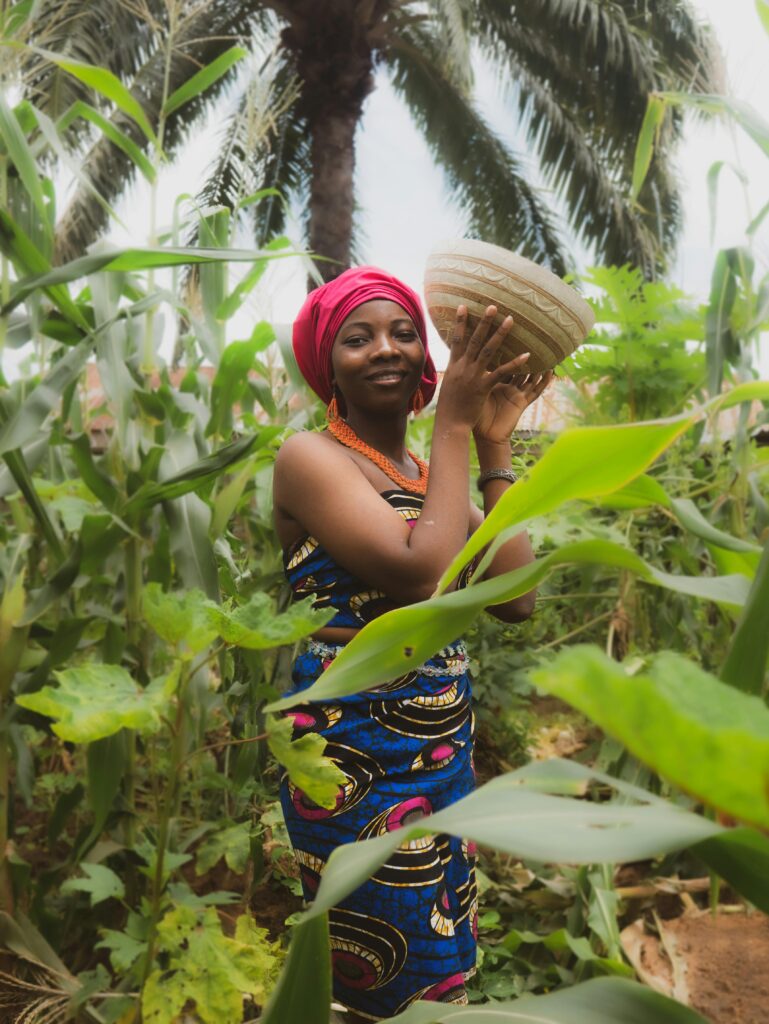
Photo: The sense of community, adaptability, and resourcefulness embedded in African values can help individuals and societies navigate challenges. This can lead to strong support networks, where people help and care for one another, enhancing social cohesion and stability.
Therefore, small-scale farming, enriched with age-old African culture and customs, may offer a sustainable and fulfilling alternative. The purpose of this article is thus not only to support food security and sustainable farming, but to explore the inherent longing of people caught up in a disrupted urban environment, to return to their roots, cultivate the land as their grandfathers did, and reconnect with family and community. Restoring self-respect and ownership of land. Through the integration of traditional sustainable practices and new technologies, this vision can be realized, promoting a well-being society grounded in the principles of Ubuntu.
This article uses both fiction and reality to inspire young people to consider the farming sector as a vocation of dignity and passion, enhancing a well-being society and discouraging the de-population of rural areas in Southern Africa.
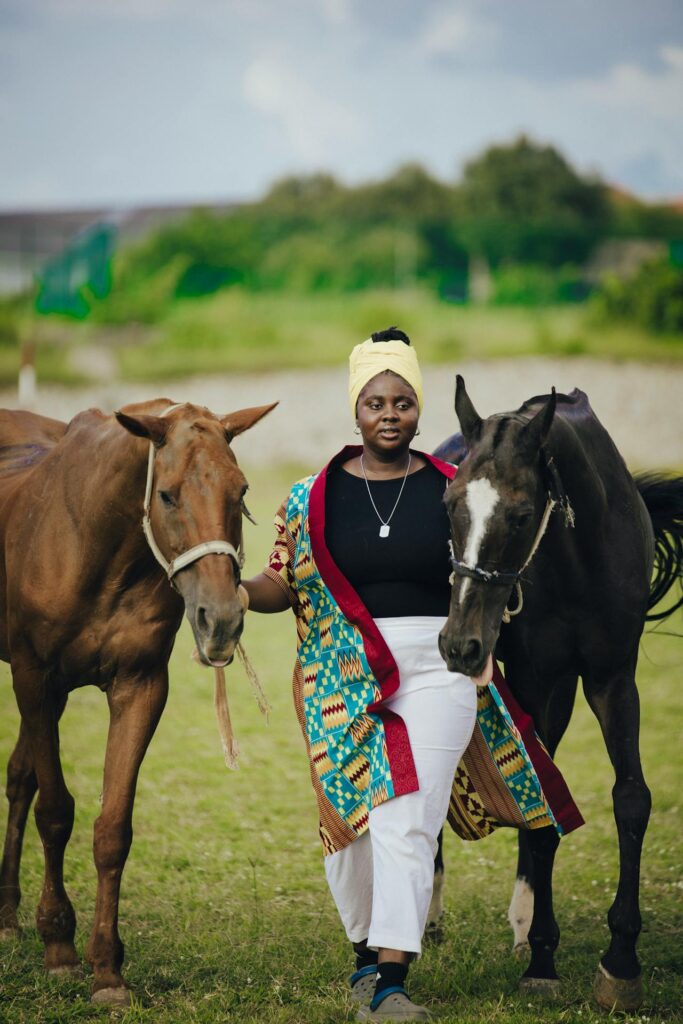
Photo: Emphasis on cultural heritage and traditions helps preserve languages, rituals, and customs, which can strengthen cultural identity and pride.

Photo: African cultures often emphasize the importance of community and collective responsibility.
Imagine a young man Nkosi, 5 years ago, tired of the empty promises that city life offers. The bustling city, with its promise of wealth and opportunity, has left him disconnected and disillusioned. What he misses most is the genuine connection he had growing up in his village: the connection with his crops, pets, farm animals, neighbors, and most importantly, his family. He dreamed of owning 10 hectares of land, where he could cultivate crops, raise livestock, and provide for his family, just as his grandfather once did.

Photo: Strong support networks, where people help and care for one another enhances social cohesion and stability – an aspect that is often neglected in Western culture.
In Southern Africa, small-scale farmers typically operate on small plots of land, often less than 5 hectares. They practice diverse cropping systems, growing a variety of crops such as maize, beans, sorghum, millet, and vegetables, and raising livestock like chickens, goats, and cattle. This poly-culture approach ensures food security, manages risk, and supports soil fertility. Farming practices are generally labor-intensive, relying on manual labor from family members and traditional tools like hoes and ploughs. This fosters community and family involvement in farming activities, creating a strong sense of connection and shared purpose. The promise of lucrative careers in metropolitan areas is tempting young people to leave their simple way of life. Many of them fail and soon find themselves relying on social services.
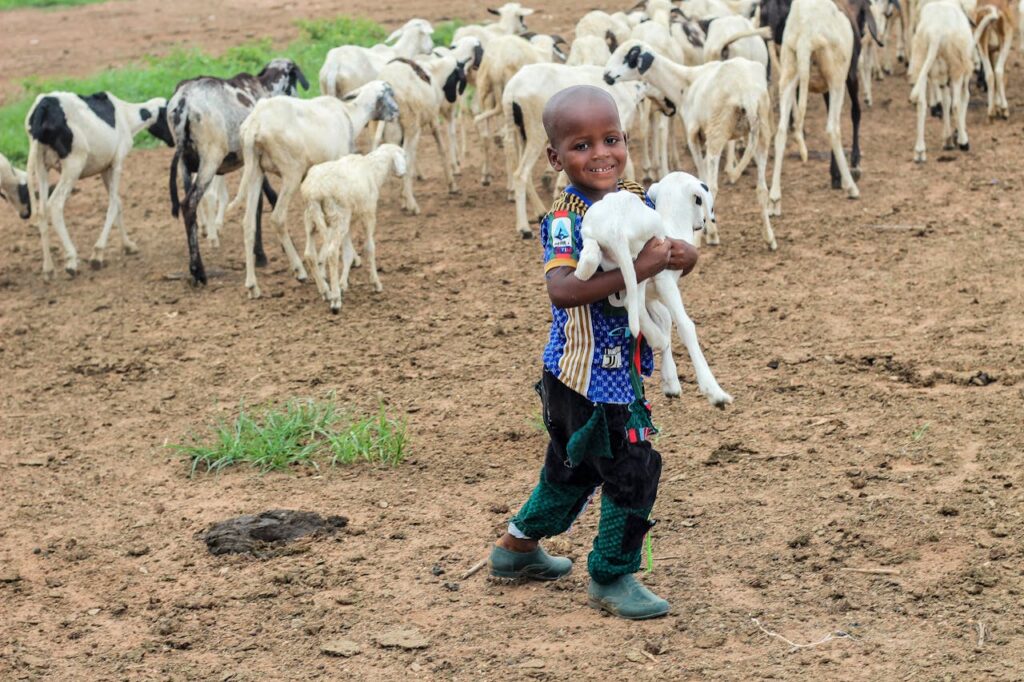
Photo: The value placed on labor often includes teaching younger generations about agricultural practices. This educational aspect ensures that essential skills and values related to farming are passed down, preparing future farmers to continue and innovate upon traditional practices.
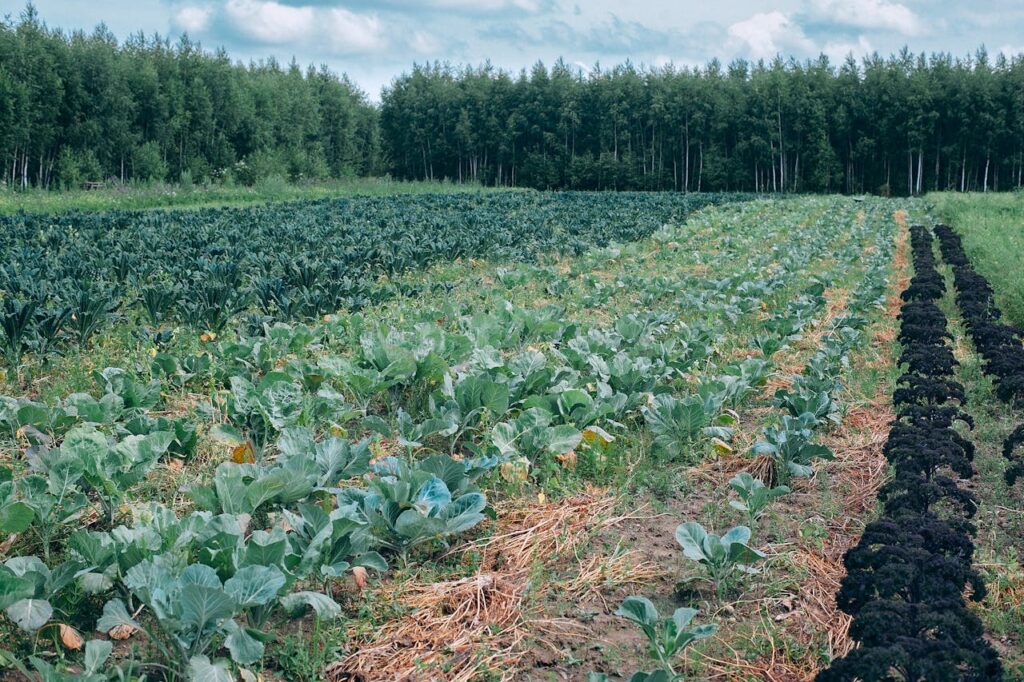
Photo: Agriculture is a major economic activity in many African societies. The ethic of labor in this context includes the recognition of agriculture as a key driver of economic stability and social development. The hard work invested in farming contributes to food security, economic growth, and community well-being.

Photo: By leveraging cell phone technology, small farmers in Africa can overcome many of the barriers they face, from accessing critical information to managing financial resources. This can lead to increased productivity, better income, and improved overall livelihoods.
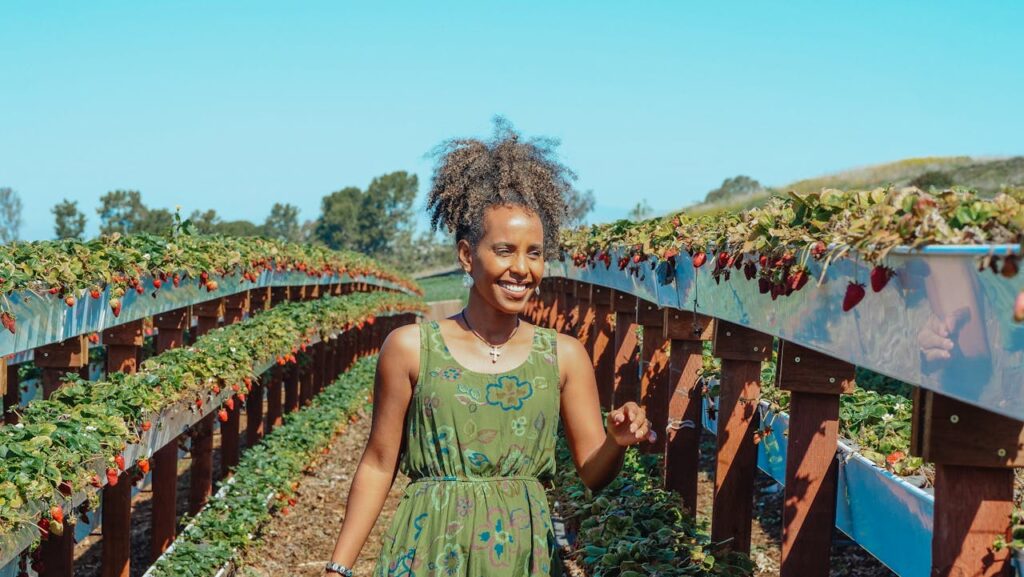
Photo: Cell phones help farmers coordinate with suppliers and buyers more efficiently. They can place orders for seeds, fertilizers, and equipment, and arrange for transportation and logistics, improving the overall efficiency of the supply chain.
As reported by a senior agricultural journalist, Glenneis Kriel (17 July 2024) in the Farmer’s Weekly, agriculture minister John Steenhuisen promised to support small farmers. He encourages inclusive growth, aiding smallholder farmers to access foreign markets. They need to contribute and co-exist with larger farmers. He stressed the importance of new technologies, products and practices and he recognizes the importance of finance to unlock the full potential of emerging farmers. He sees brilliant potential in the agricultural sector as an “engine room” of job creation, economic growth and development of the rural economy.
This vision is being carried by Nkosi. He is one of a new generation of hopeful farmers across Africa. By embracing modern techniques, technologies, and sustainable practices he is not abandoning traditional methods but rather he envisages the incorporation of innovative approaches to enhance productivity and sustainability. For example, IoT devices and apps on cell phones offer access to real-time data collection on soil moisture, weather conditions, and crop health. These technologies help him to optimize resource use, reduce waste, and improve yields.

Photo: Hydroponics is a method of growing plants in a nutrient-rich water solution instead of soil, allowing for precise control over nutrients and environmental conditions.
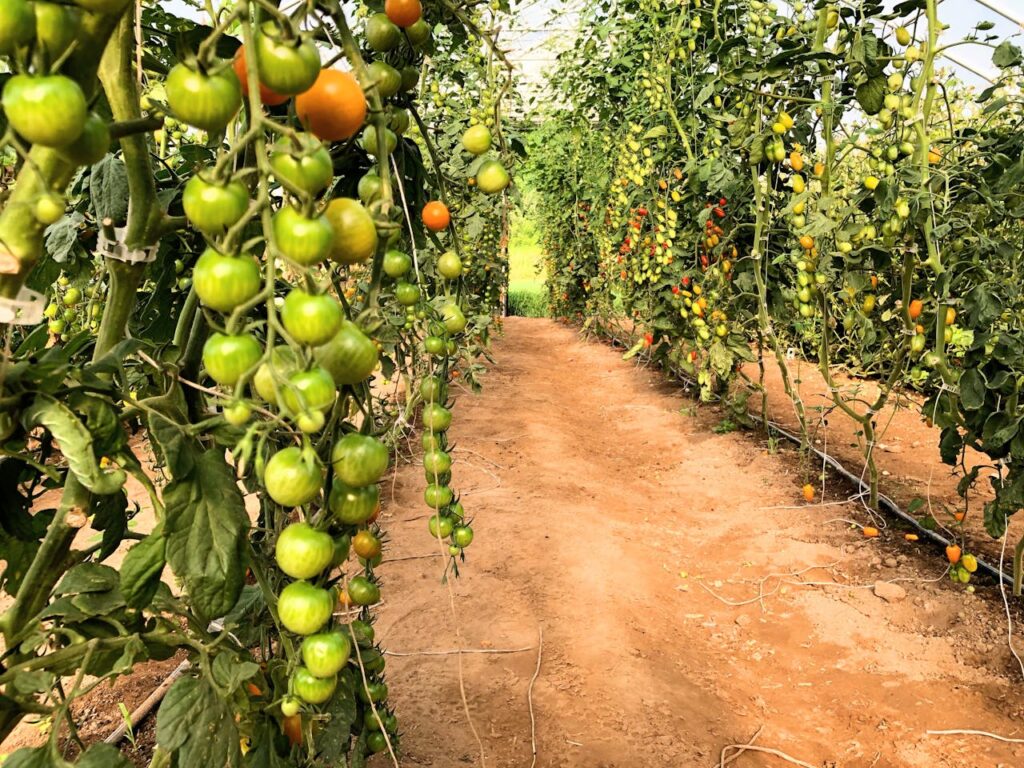
Photo: Vertical farming is a method of growing crops in vertically stacked layers or structures, often using controlled environments to optimize space and resource use in urban or limited spaces.

Photo: Permaculture is a design philosophy and system that seeks to create sustainable, self-sufficient, and resilient ecosystems by mimicking natural processes. The term “permaculture” is derived from “permanent agriculture” or “permanent culture,” emphasizing the goal of creating lasting and regenerative systems.
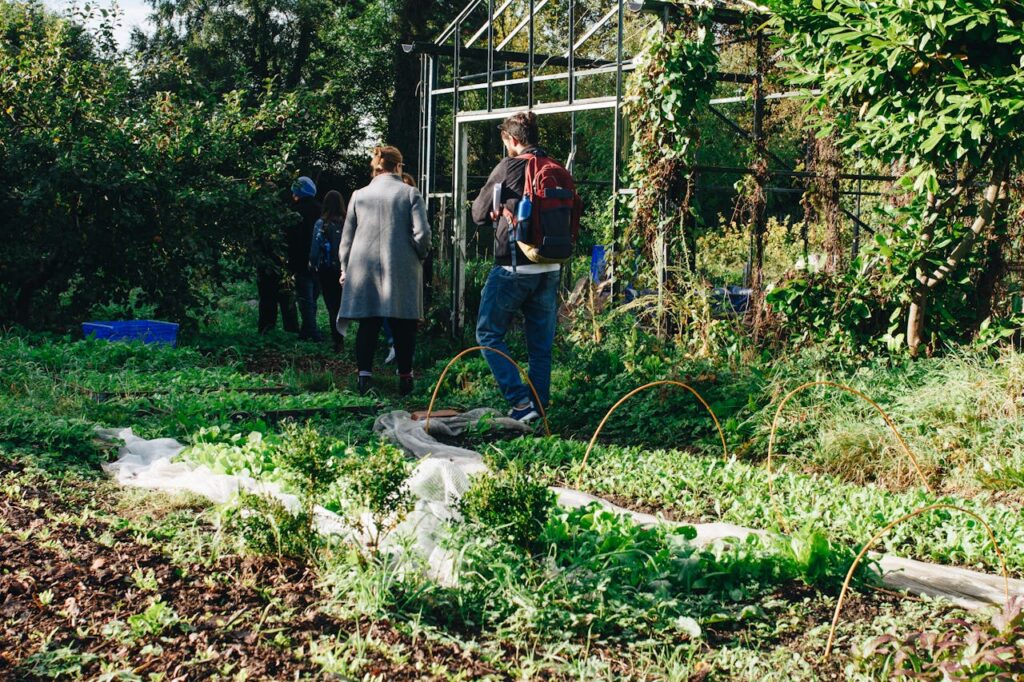
Photo: Organic farming is an agricultural approach that emphasizes the use of natural processes and materials to cultivate crops and raise livestock. It aims to create a balanced and sustainable farming system that enhances soil health, promotes biodiversity, and minimizes the impact on the environment.
Nkosi’s approach to farming emphasizes sustainable practices that promote environmental health and long-term agricultural viability. He adopts methods such as organic farming (1), permaculture (2), and regenerative agriculture (3). These practices aim to create more resilient and productive farming systems. After becoming commercially viable Nkosi also began to incorporate urban farming techniques, such as hydroponics (4) and aquaponics (5), to maximize space and resources.1
As he ventures out to make his dream a reality Nkosi faces many challenges, including limited access to credit and financial services, inadequate infrastructure, and the impacts of climate change. However, he overcomes these challenges in affordable environmentally friendly ways. He adopts conservation agriculture practices, such as minimal soil disturbance (6), crop rotation (7), and cover cropping (8), and applies practices that enhance soil health (9) and resilience. He cultivates drought-resistant crop varieties like prickly paers. He implements agro-forestry systems (10) by integrating trees and shrubs into his farming system to improve biodiversity and provide additional income sources such as farm tourism.

Photo: Cover cropping is an agricultural practice where certain plants, known as cover crops, are grown not to harvest, but to improve soil health and manage various agricultural issues. These crops, such as clover, rye, or vetch, are planted between periods of regular crop cultivation or during the off-season.

Photo: Crop rotation is an agricultural practice where different types of crops are planted in the same area across different seasons or years. Instead of growing the same crop in the same field repeatedly, farmers alternate crops to enhance soil health, manage pests, and improve yields.
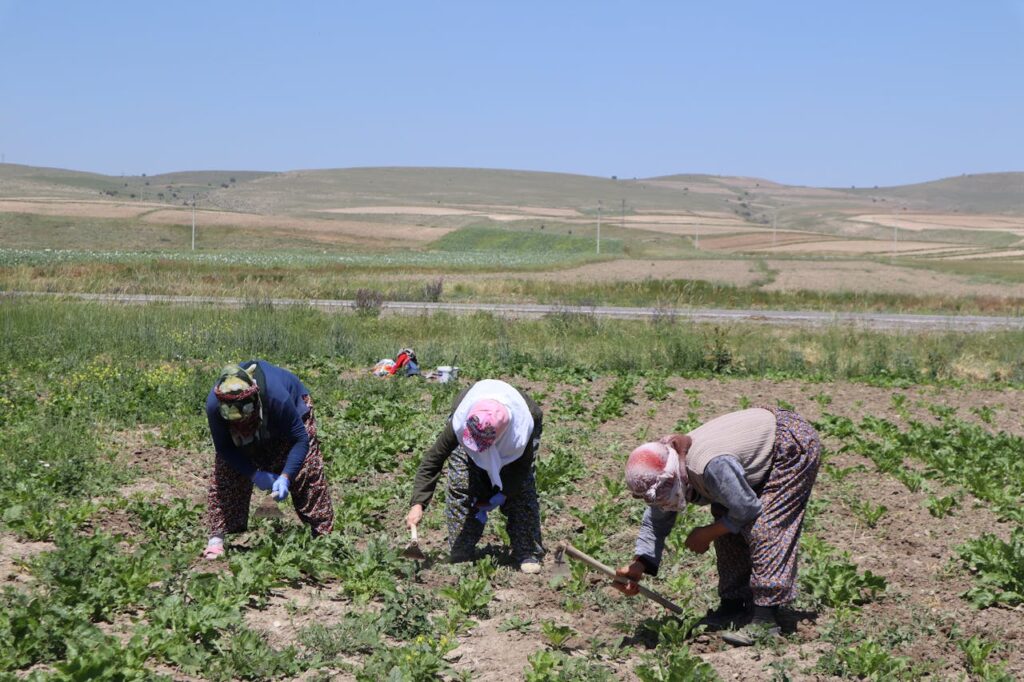
Photo: Minimal soil disturbance, often associated with practices like no-till or reduced-till farming, offers several advantages in agriculture such as improved soil structure, increased organic matter, reduced erosion and enhanced soil moisture.
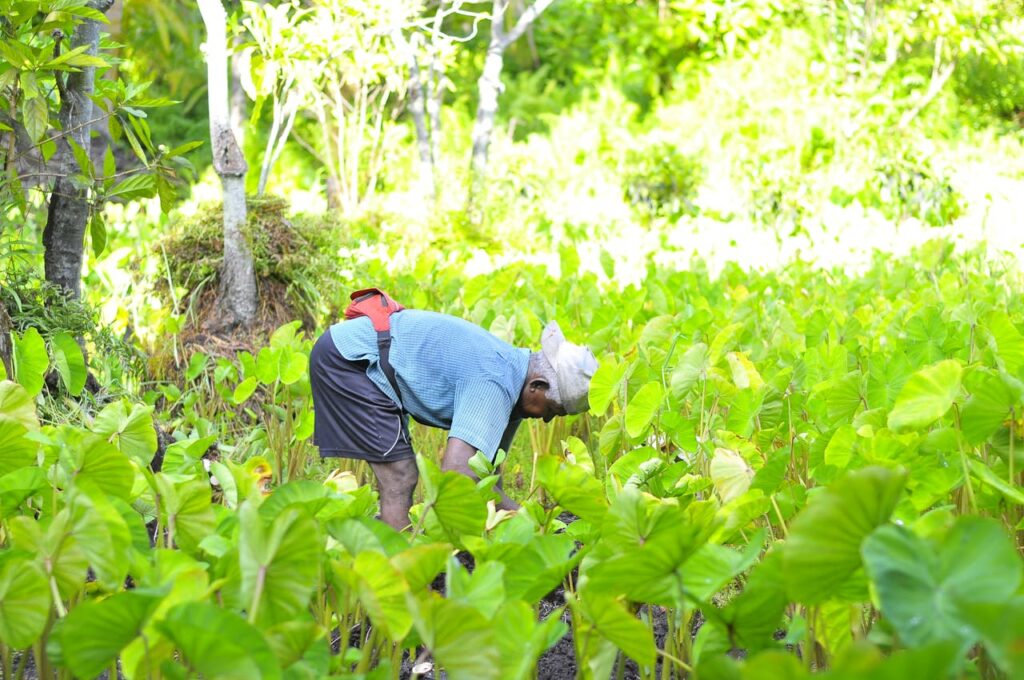
Photo: Agro-forestry involves planting trees, shrubs, and other vegetation alongside or within agricultural crops or pastures. This diversity can improve soil health, enhance biodiversity, and create a more resilient ecosystem.
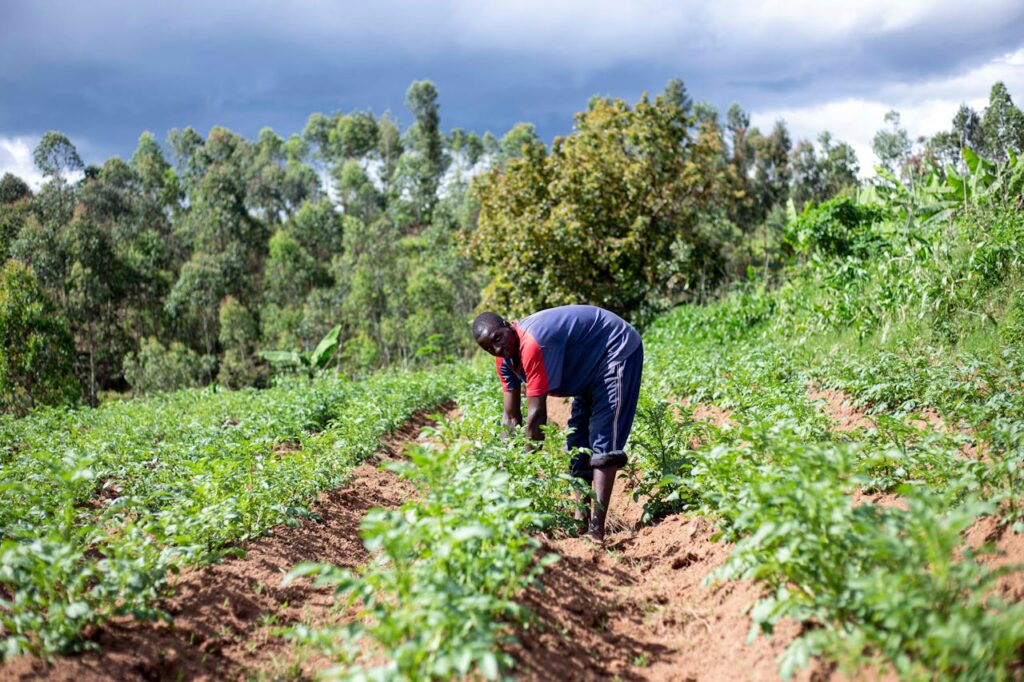
Photo: Unlike conventional agriculture, which often focuses on maximizing short-term yields and may deplete soil health and biodiversity, regenerative agriculture emphasizes long-term sustainability, ecosystem restoration, and resilience.

Photo: Traditional African education often includes practical life skills, moral values, and social norms, which can complement formal education and provide valuable life lessons.
Education and advocacy are key components of Nkosi’s farming philosophy. He engages in efforts to raise awareness about sustainable food systems, the benefits of healthy eating, and the importance of supporting local agriculture. He offers farm tours, workshops, and community events to educate the public and promote his sustainable practices. By sharing his unique farming practices and knowledge, deeply rooted in community and tradition, he also generates extra income from tourism.
Nkosi encourages visitors to his farm to shift their mindset from self-interest to one of Ubuntu, emphasizing sharing and caring. Ubuntu, a Nguni Bantu term meaning “humanity,” is a philosophy that emphasizes the interconnectedness of all people and the importance of community. By fostering a sense of shared responsibility and mutual support, Nkosi believes that small-scale farming can contribute to a well-being society.

Photo: The concept of “Ubuntu” (often translated as “I am because we are”) underscores a deep sense of interconnectedness and mutual respect. This can foster inclusivity, empathy, and a sense of belonging among community members.
African cultural beliefs provide a holistic approach to health, encompassing not just physical treatments but also mental and spiritual care. These cultural values contribute to resilience in the face of adversity. The sense of community, adaptability, and resourcefulness embedded in these values can help individuals and societies navigate challenges.
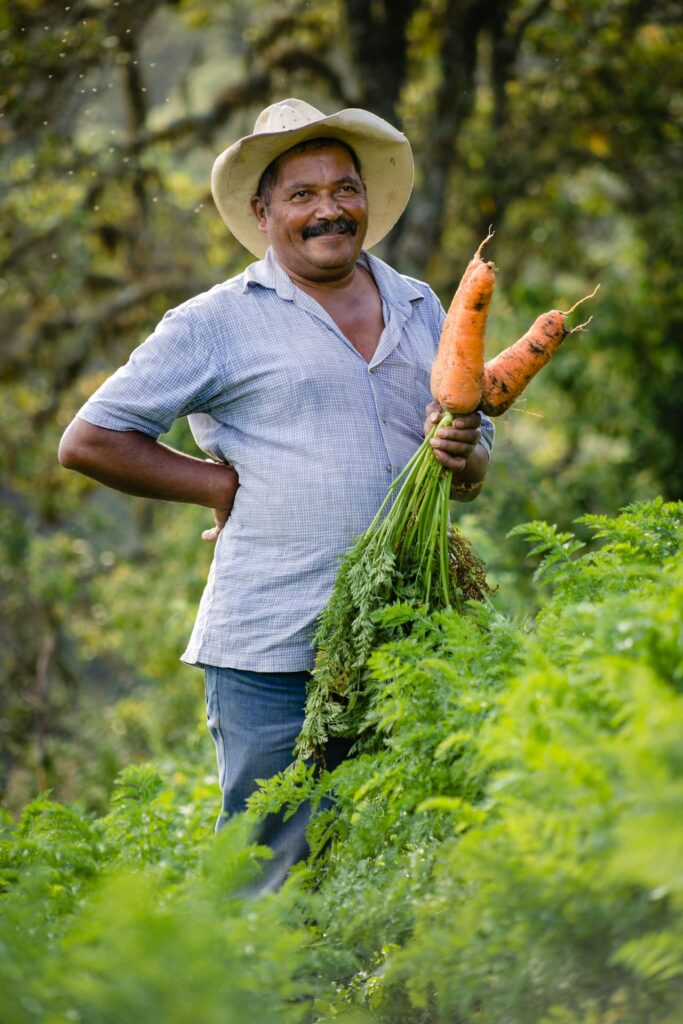
Photo: Traditional African practices often include sustainable environmental stewardship, such as respecting natural resources and practicing agricultural techniques that are harmonious with the environment.
Small-scale farming in Southern Africa is essential for maintaining agricultural biodiversity, supporting rural economies, and preserving cultural traditions related to farming and food production. Despite facing numerous challenges, small-scale farmers like Nkosi demonstrate resilience and adaptability, contributing significantly to the region’s food security and sustainable development. By pioneering a shift towards more sustainable, efficient, and resilient agricultural systems, farmers like Nkosi are transforming agriculture and contributing to a more sustainable future. Nkosi’s journey serves as a testament to the power of combining traditional wisdom with modern technology, fostering genuine connections, and promoting a society rooted in the principles of Ubuntu.

Photo: Overall, African cultural values offer a framework for building strong, supportive communities, preserving heritage, and fostering holistic well-being.